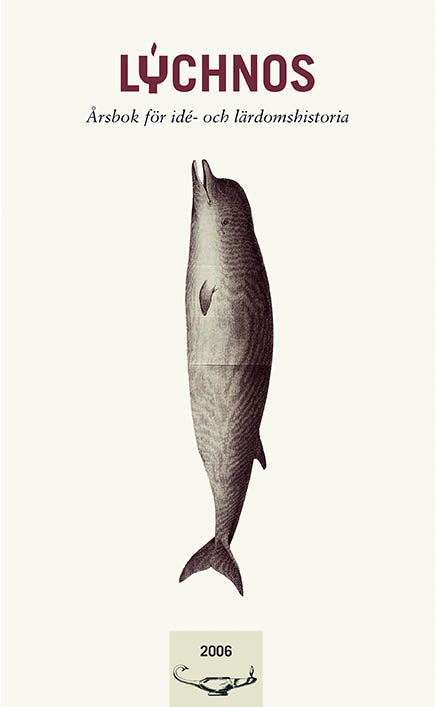Gotland och goterna
Gotlands roll i medeltidens och renässansens goticism
Abstract
Gotland was linked with the Goths in the thirteenth- century De proprietatibus rerum of Bartholomaeus Anglicus, an English Franciscan, according to which the Goths originated in Sweden – for which the old name was Gothia – and from the island of Gotland. Gotland was well known in northern Europe as a trading centre, and the similarities between the names led people to assume that the Goths came from there originally. Bartholomaeus Anglicus used the Goths' glorious ancient history as the setting for his account of contemporary, wealthy Gotland.
Inspired by Bartholomaeus Anglicus, amongst others, the Scandinavians cultivated Gothicism. The Danish king Valdemar Atterdag seized Gotland in 1361 and assumed the Swedish royal title Gothorum rex, asserting in the process what appears to have been a Gothicist interpretation of the island's name.
The German humanists in around 1500 were increasingly interested in their German forebears, not least the Goths. The name Gotland was thought to prove that the Germans had come from the North, not the barbarian East – land of the Huns and Tartars – as both ancient Romans and contemporary Italians claimed. Many contemporary maps used the designation Gothia for Gotland, following the fifteenth-century Danish cartographer Claudius Clavus, who in turn had been influenced by Bartholomaeus Anglicus. Gotland was thought to be an old Gothic area. In about 1500, a Canon of Hamburg, Albert Krantz, described it as an island whose heyday was long gone; Gothic antiquity and the high middle ages blurred into one. The battles for the island had made it an uncertain place for merchants, according to Krantz. The German geographer Jakob Ziegler described Visby in 1532 as a city of ruins. The old Gothic island became a striking witness to the vicissitudes of fortune.
Swedish clerics Johannes Magnus (1488–1544) and Olaus Magnus (1490–1557) were inspired by German literature. It was to political ends that they exploited the idea that Gotland had once been inhabited by the Gothic people who also lived in Gothia (Sweden); by rights the island belonged to the Swedes, who were in fact synonymous with the ancient Goths, they argued. Visby's decline and ruin were held up as proof of the Danes' cruelty and misrule, but also as telling examples of the consequences of the Swedes' own disunity. The Danish historians Hans Svaning (c.1500–1584) and Nicolaus Petrejus (c.1522–1579) put the opposing case: the Goths had migrated to Gotland from Denmark. Thus we find the beginnings of a historiographical debate over Gotland that has lasted for centuries.
Downloads
Publicerad
Nummer
Sektion
Licens
This work is licensed under a Creative Commons Attribution 4.0 International License. The copyright for the work published in Lychnos remains with the authors.


